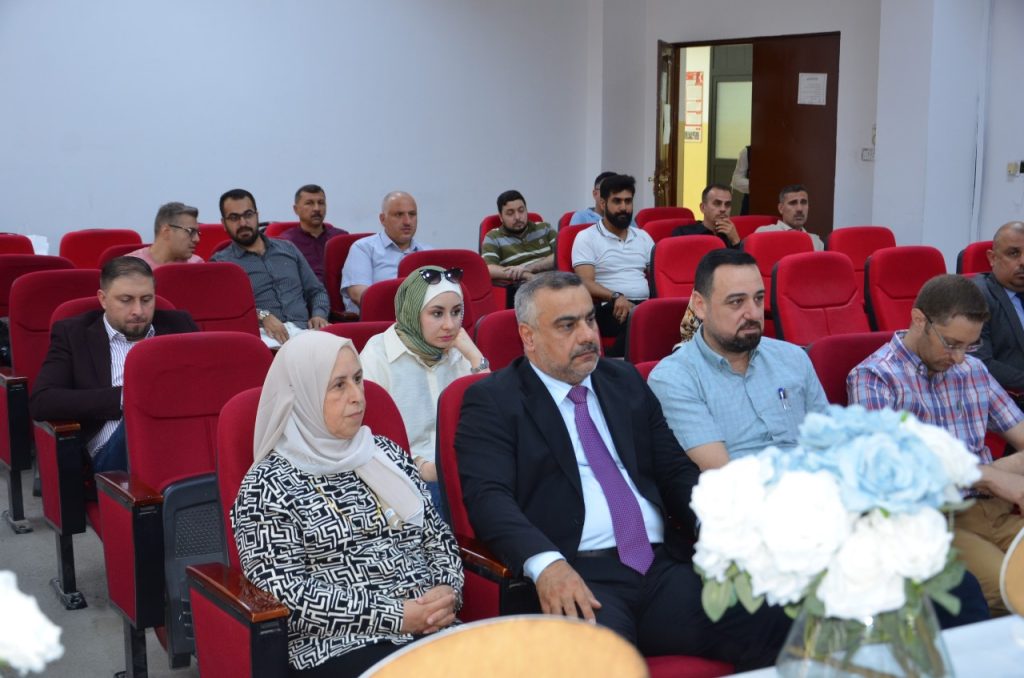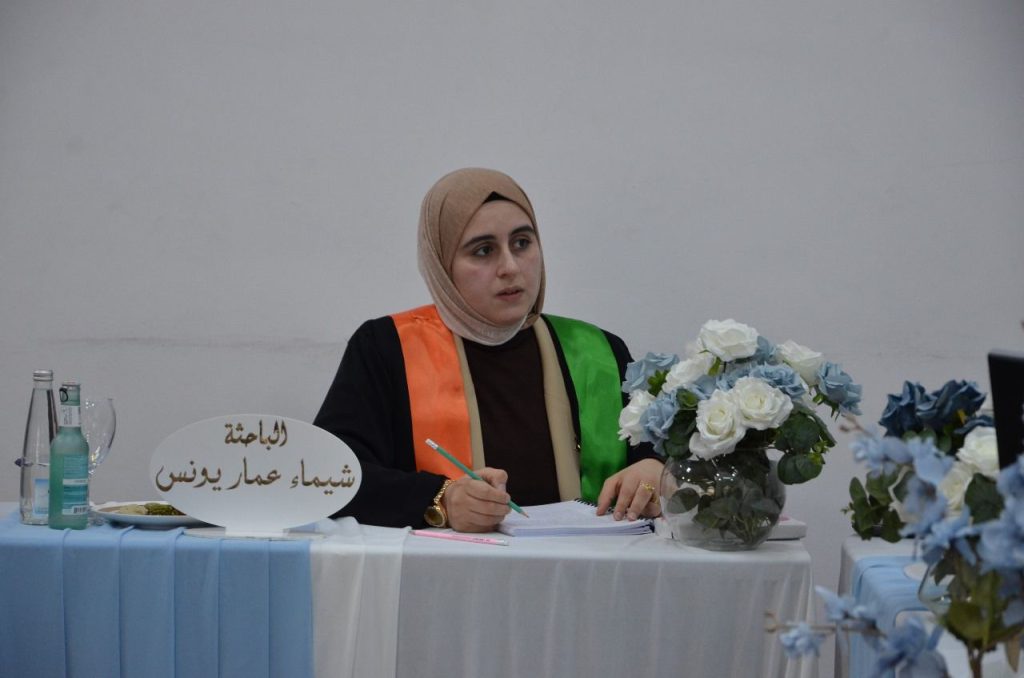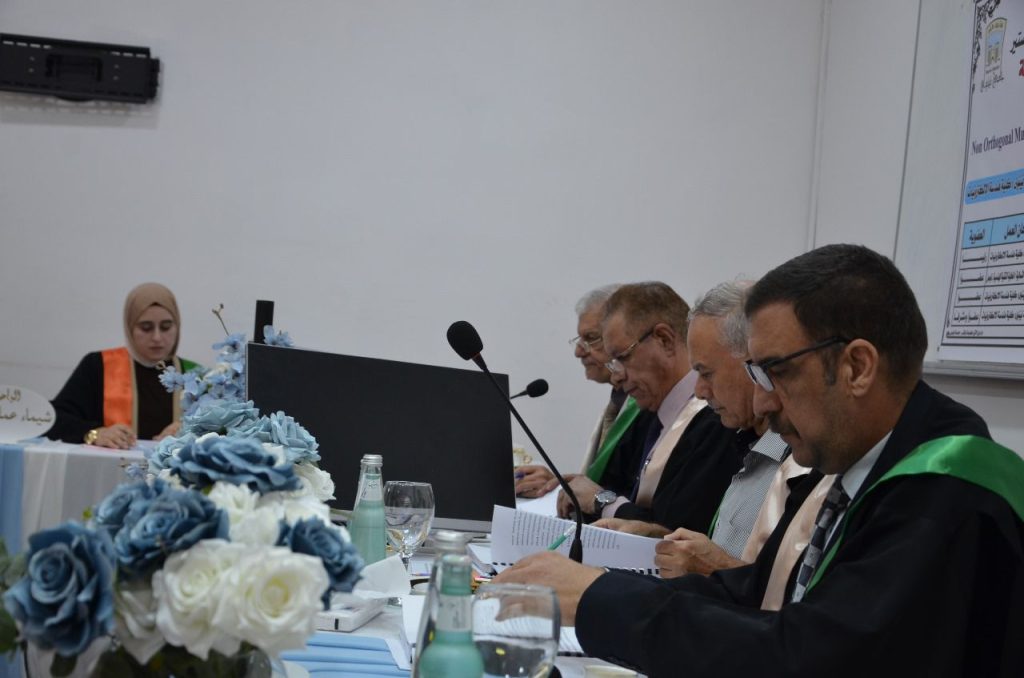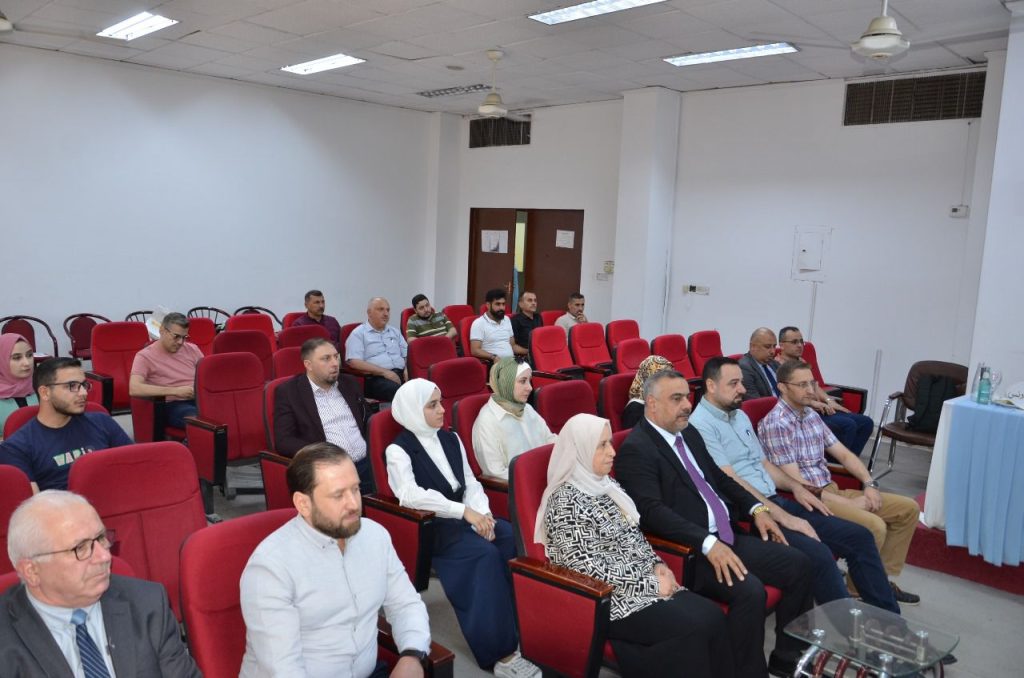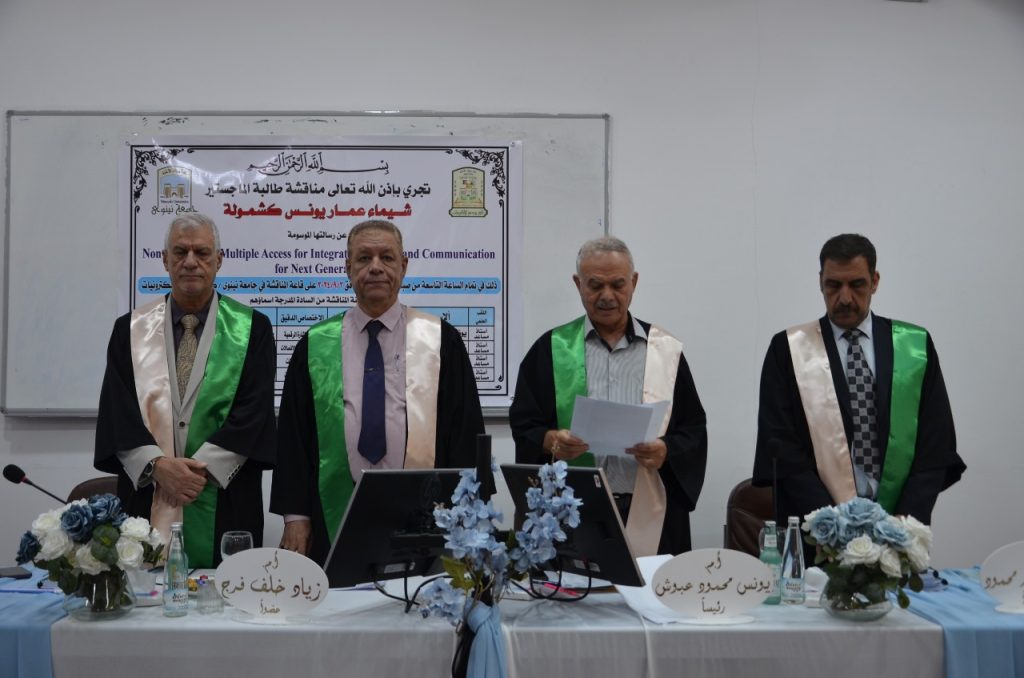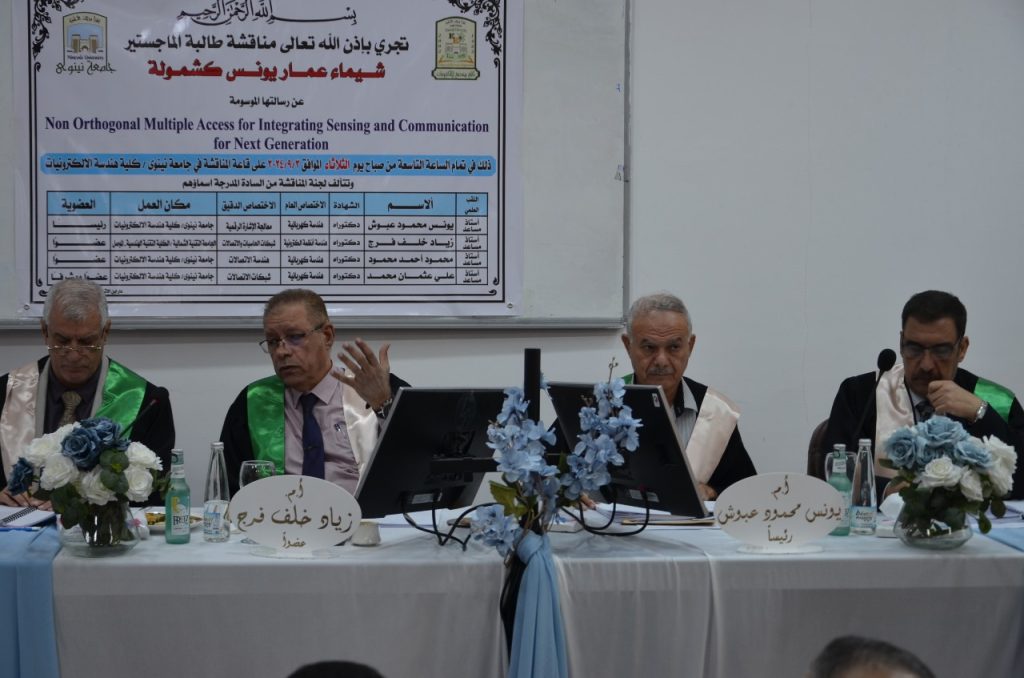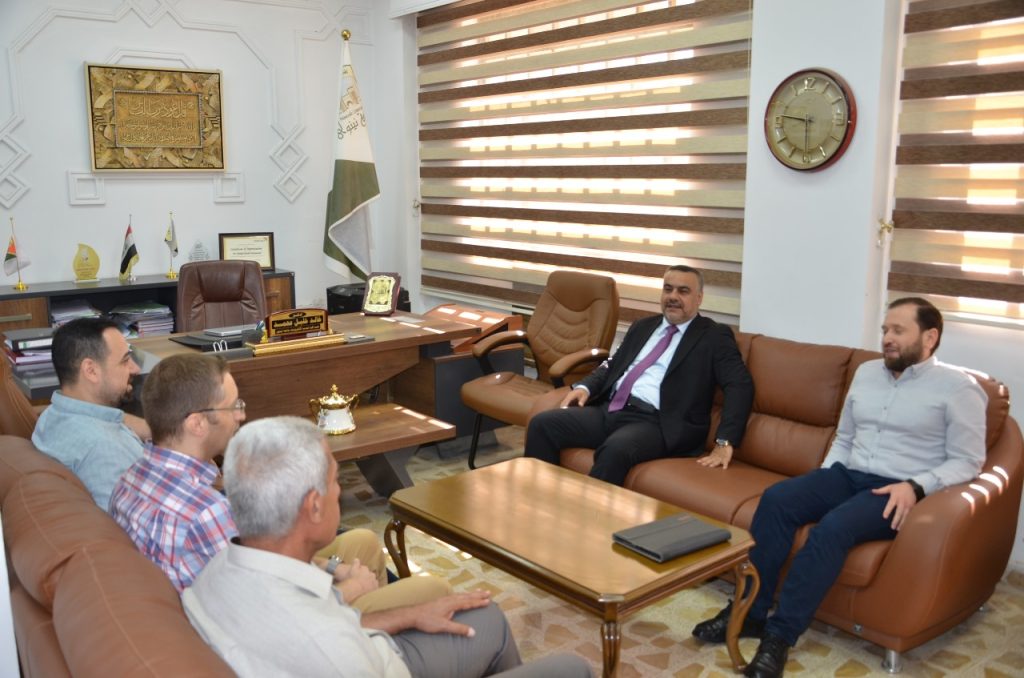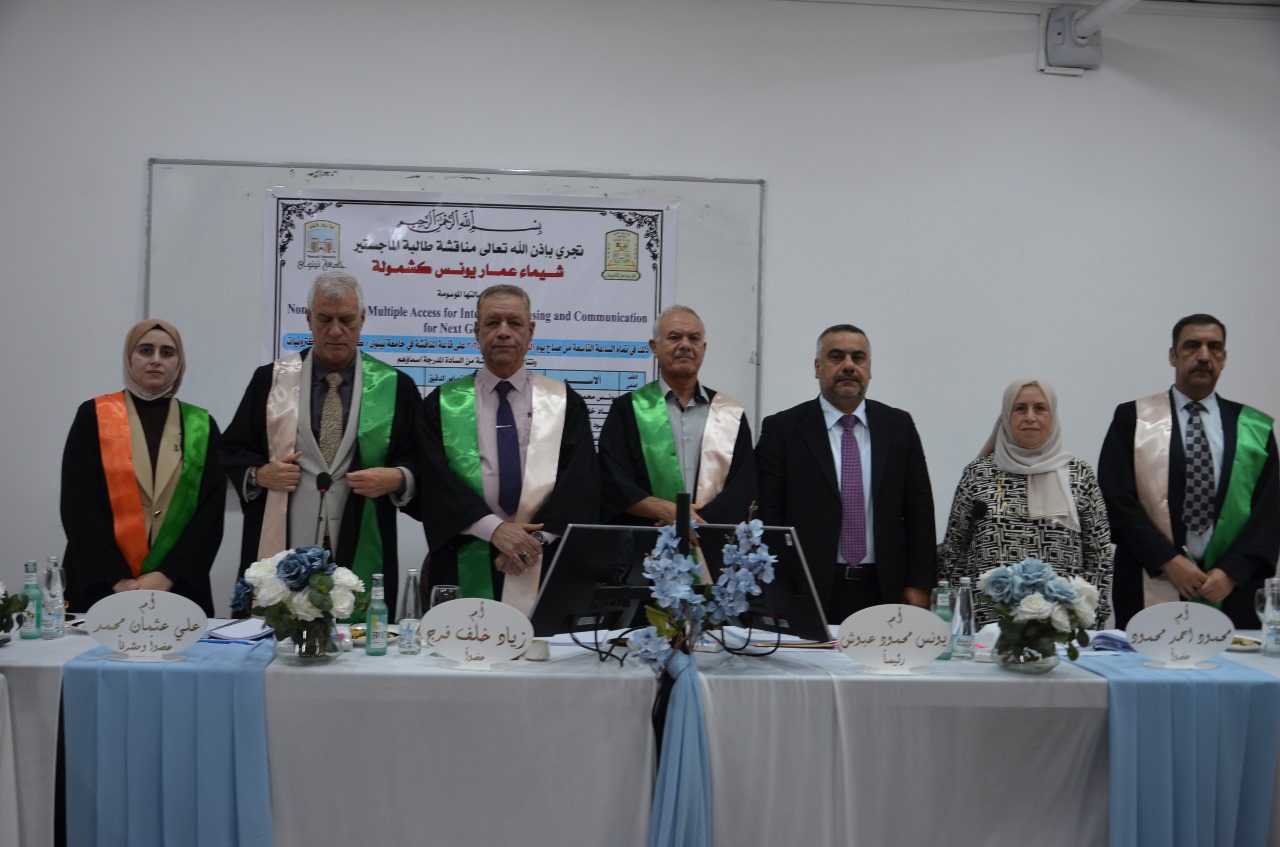The thesis, conducted by Shaimaa Ammar Younis Kashmoula from the Department of Communications Engineering at the College of Electronics Engineering, is titled “Non-Orthogonal Multiple Access for Integrating Sensing and Communications for Next Generation.”
The discussion was attended by the University President, Prof. Dr. Osama Al-Mashhadani, the Dean of the College of Information Technology, Prof. Dr. Manar Younis Kashmoula, the Assistants Dean of the College of Electronics Engineering, as well as a group of professors and postgraduate students.
The thesis addressed the enhancement of target detection and speed estimation in complex environments through the integration of Sensing and Communications Systems (ISAC) and the challenges faced by traditional methods such as Signal-to-Noise Ratio (SNR) with high-speed targets.
The thesis proposed models to analyze target movement and its impact on base stations (BSs), aiming to improve situational awareness and system performance, leading to more efficient target tracking and resource utilization in wireless communication networks.
The objective of the thesis was to assess the efficiency of integrating communication and sensing technologies in the context of 5G networks, and to study the use of Integrated Sensing and Communication Systems (ISAC) using Non-Orthogonal Multiple Access (NOMA) to enhance the efficiency and effectiveness of wireless networks. It also aimed to enable current sensing and communication capabilities without hardware changes by leveraging the locations of 5G base stations (BSs) and using integrated sensing and communication technologies to increase the accuracy of target location and speed estimation. Additionally, the thesis reproduced a model for ISAC systems to evaluate the performance and effectiveness of the proposed model.
The discussion committee consisted of:
- Asst. Prof. Dr. Younis Mahmoud Aboush, Chair.
- Asst. Prof. Dr. Ziad Khalaf Faraj, Member.
- Asst. Prof. Dr. Mahmoud Ahmed Mahmoud, Member.
- Prof. Dr. Ali Othman Mohammed, Member and Supervisor.
We extend our best wishes to the researcher and the discussion committee for continued success and achievement.
